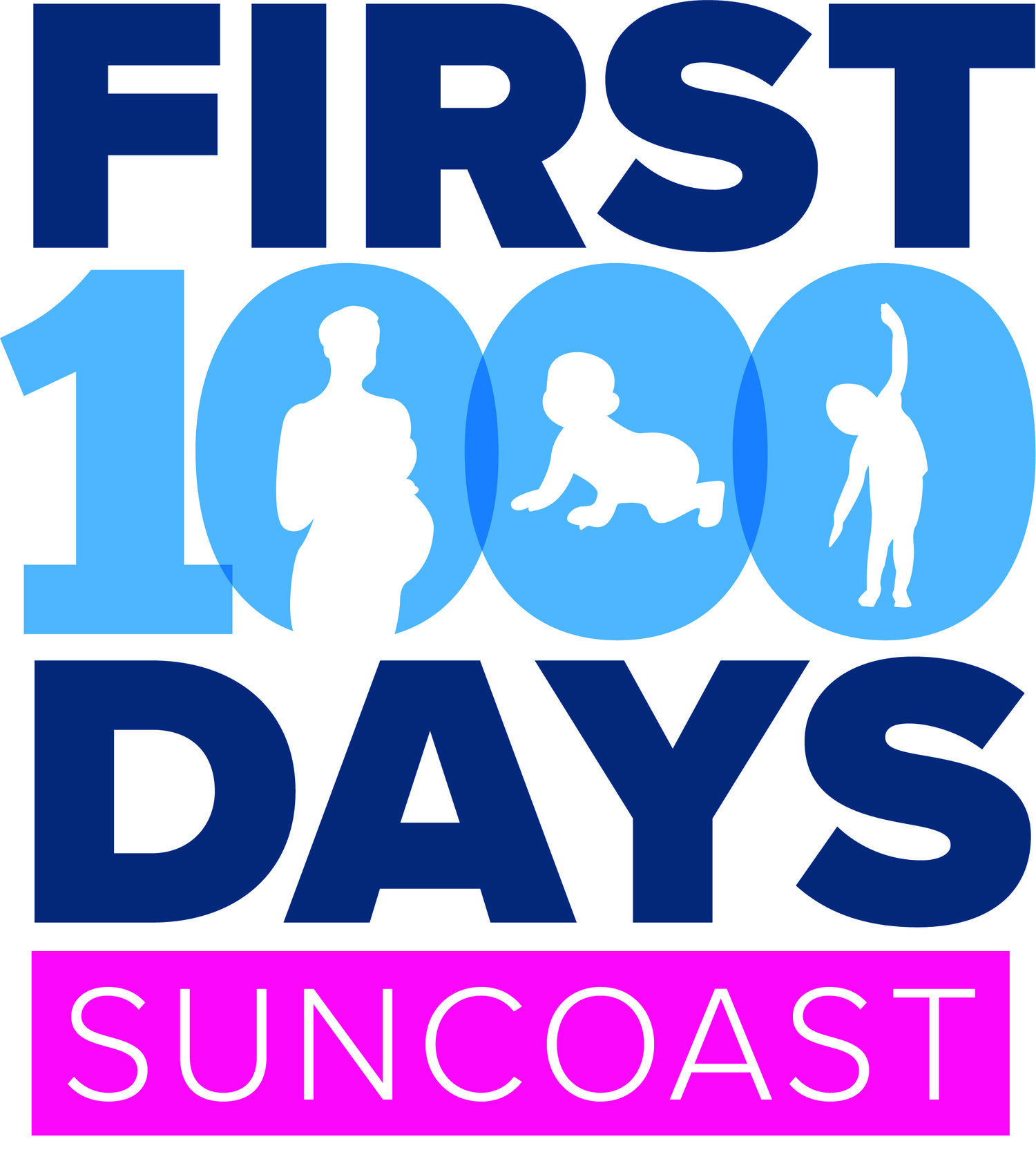
Moving from a maze of resources to a coordinated system of care.
The first 1,000 days of a child’s life are critical. When those early years are characterized by adversity, the lifetime impacts can be devastating. Fortunately, children are extraordinarily resilient if provided the supports to help them thrive. First 1,000 Days Suncoast is a collaborative of 90+ community organizations all working together to create a continuum of care that will meet the comprehensive needs of families, improve health equity, and foster a positive trajectory for all children.
For more information about our history and ways to get involved as a partner agency, scroll to the footer at the bottom of the page under “For Partner Agencies”.
Theory of Change
Difficulty navigating the system was a major barrier to care identified by professionals and families. To build a navigable, supportive network for families and improve infant, child, and family health and well-being, First 1000 Days Suncoast devised a blended framework with three key components. The components are all independently grounded in science and guided by community, parent, and stakeholder input. If successful, women will have access to prenatal care and supportive services for healthier pregnancies, children will be healthier and more resilient, and health inequities amongst pregnant individuals, infants, and children in our region will be reduced. Merging multifaceted healthcare, mental health, and social systems; networking with other initiatives across the country; and strategic planning ensures the incorporation of best practices and tactical regional alignment.
Key Components
Care Coordination
Parent Empowerment
A child’s first few years lay the foundation for the rest of their life. Having one supportive, nurturing adult relationship has a significant effect on a child’s resiliency, health, and ability to overcome adversities. The initiative empowers parents to not only be their child’s first teacher, but also community leaders.
Professionals and parents identified “difficulty navigating the system” as the biggest barrier to care for families in our region. By screening and connecting families with community services we aim to improve health behaviors, reduce negative social and economic factors, and increase access to high quality care.
Targeted Interventions and Services
Using multi-sector data, parent guidance, and the expertise of community partners, the initiative develops targeted interventions and services to address race and place-based inequities in the region.
Breaking Down Barriers
Each year, First 1,000 Days Suncoast reviews barriers facing families in our region. The team facilitates workgroups, comprised of community partners and parents with lived experience, to develop innovative solutions.
2023 Workgroups
Perinatal Mental Health Workgroup
Access to mental health care during pregnancy and postpartum was a top barrier for mothers. This workgroup developed a movement that promotes screening for perinatal depression and anxiety and a region-wide mental health campaign to reduce the stigma of mental health disorders. Ensuring families know where to go for mental health support is key to ensuring the health and well-being of children. Chaired by Carla Johanns, Forty Carrots Family Center, this group pioneered an innovative Perinatal Mental Health Coordination Hub program.
Research and Evaluation
Everything in our initiative is driven by data, not only quantitative data but “lived experience” data from the families we serve. Dr. Arnold is working together with research specialists from Sarasota Memorial Health Care System and Unite Us to evaluate the impact of social care coordination on healthcare utilization, parental stress, and protective factors. This novel and progressive research will provide national data to the public health field. Other research areas of focus include: parent knowledge on brain development and parenting behaviors.
Navigator Workgroup
From peer support specialists and parent advocates to care coordinators and navigators, their roles have two things in common: creating a warm and welcoming space for families to share their stories and helping them navigate a complex web of medical, social, and mental health services. Developed in partnership with Florida Department of Health in Sarasota County and Multicultural Health Institute (MHI), the workgroup goals include collaborating on complex social and medical situations, networking and supporting other peers, providing assistance for the care coordination, and identifying areas for partnerships, professional development, and awareness.
Professional Development
It is critical to provide ongoing opportunities for growth, reflection, and education. Our goal is to improve coordination of services for families, but in doing so we must ensure our partners are uplifted and provided the tools to provide excellent client care. Information collected from surveys and focus groups guided our areas of focus to include: cultural competency, trauma-informed care, and equity.
Our Results
-
In Progress
-
In progress
-
-
-







